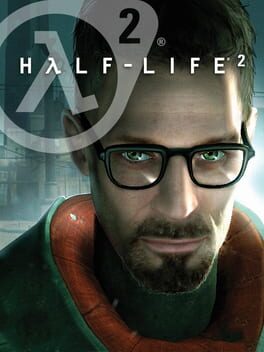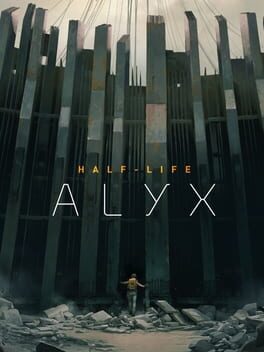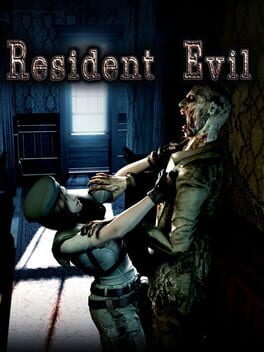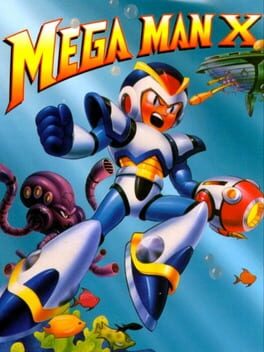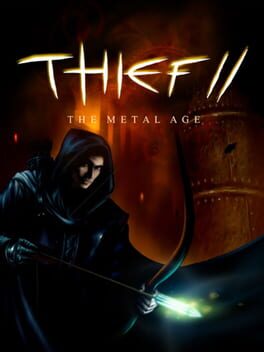CretinWorkshop
Badges

Trend Setter
Gained 50+ followers

Replay '14
Participated in the 2014 Replay Event

Adored
Gained 300+ total review likes

Gone Gold
Received 5+ likes on a review while featured on the front page

Shreked
Found the secret ogre page

Pinged
Mentioned by another user

Loved
Gained 100+ total review likes

2 Years of Service
Being part of the Backloggd community for 2 years

Well Written
Gained 10+ likes on a single review

N00b
Played 100+ games

Popular
Gained 15+ followers

Best Friends
Become mutual friends with at least 3 others

Donor
Liked 50+ reviews / lists

Liked
Gained 10+ total review likes

Noticed
Gained 3+ followers
Favorite Games
197
Total Games Played
018
Played in 2024
211
Games Backloggd
Recently Played See More
Recently Reviewed See More
I'm a big fan of the Resident Evil 4 remake's take on the classic Mercenaries game mode. This isn't a secret; I make sure to talk about the Mercenaries in every Resident Evil game I review that includes it, and I consider it to be a core part of the experience. In any case, Resident Evil 4: The Mercenaries is a great piece of free DLC that added at least twenty hours of additional playtime to an already fantastic game, but it was sorely lacking in content at launch with just four playable characters and three stages. While I find it sort of inexcusable that Ada Wong, Albert Wesker, and the docks stage were initially missing, the free Separate Ways Update exists to rectify that problem alongside including some new additions wrapped in a nice bow.
Ada and Wesker, expectedly, feel absolutely incredible to play for the most part. Ada's focus on quick movement with her arsenal and grappling hook means chaining attacks is easy and fun, and zipping around the map never fails to be satisfying. She might be my favorite character to play as, as her maneuverability options make an already fast-paced side mode even more enjoyable. Wesker has a completely different gameplay style, but he matches a similar level of speed. While Wesker does come equipped with a couple of firearms, you'll never want to use them as darting around the map beating the everloving shit out of enemies Shonen Jump style never gets old. You're practically invincible in this mode, as your lightning-fast melee attacks are your counter, so Wesker essentially serves as the god mode you play when you've had a frustrating day at work. My only real issue with him is that, like the original, he lacks a knife. While this was negligible in the original, RE4make's more versatile usage of the weapon means that Wesker cannot stop convulsing Ganados from transforming without wasting ammo. The two "new" characters are additional variants of Leon and Ada and do give some nice variety to both playstyles. The docks stage is also fun, has a lot of interesting segments with different ways to maneuver through two levels of elevation, and a bridge that opens up midway through the round as a fun choke point. However, compared to the aesthetically pleasing bright skies, wood-built, blue ocean look of its 2005 equivalent, the dark and muddy steel platform can't help but feel sauceless in comparison which I found more disappointing than I probably should have.
Possibly nitpicky criticisms of the docks' visual aesthetic aside, the Separate Ways Update is a largely great free update that pumps even more replayability into an already great side mode. While all of this certainly should have been in The Mercenaries to begin with, this update still gives us two of the mode's most fun characters, some fun additional load-outs, and a fairly solid new map to pump far more hours into. It feels weird giving such a high rating to something that undoubtedly shouldn't have even needed to be an update at all, but what it adds to the game is great nonetheless. If you put a ton of time into The Mercenaries but haven't yet had the opportunity to play this update, it's well worth reinstalling to sink way too many hours into.
Ada and Wesker, expectedly, feel absolutely incredible to play for the most part. Ada's focus on quick movement with her arsenal and grappling hook means chaining attacks is easy and fun, and zipping around the map never fails to be satisfying. She might be my favorite character to play as, as her maneuverability options make an already fast-paced side mode even more enjoyable. Wesker has a completely different gameplay style, but he matches a similar level of speed. While Wesker does come equipped with a couple of firearms, you'll never want to use them as darting around the map beating the everloving shit out of enemies Shonen Jump style never gets old. You're practically invincible in this mode, as your lightning-fast melee attacks are your counter, so Wesker essentially serves as the god mode you play when you've had a frustrating day at work. My only real issue with him is that, like the original, he lacks a knife. While this was negligible in the original, RE4make's more versatile usage of the weapon means that Wesker cannot stop convulsing Ganados from transforming without wasting ammo. The two "new" characters are additional variants of Leon and Ada and do give some nice variety to both playstyles. The docks stage is also fun, has a lot of interesting segments with different ways to maneuver through two levels of elevation, and a bridge that opens up midway through the round as a fun choke point. However, compared to the aesthetically pleasing bright skies, wood-built, blue ocean look of its 2005 equivalent, the dark and muddy steel platform can't help but feel sauceless in comparison which I found more disappointing than I probably should have.
Possibly nitpicky criticisms of the docks' visual aesthetic aside, the Separate Ways Update is a largely great free update that pumps even more replayability into an already great side mode. While all of this certainly should have been in The Mercenaries to begin with, this update still gives us two of the mode's most fun characters, some fun additional load-outs, and a fairly solid new map to pump far more hours into. It feels weird giving such a high rating to something that undoubtedly shouldn't have even needed to be an update at all, but what it adds to the game is great nonetheless. If you put a ton of time into The Mercenaries but haven't yet had the opportunity to play this update, it's well worth reinstalling to sink way too many hours into.
It's bizarre to see a Mercenaries mode for a mainline Resident Evil game released after the game as downloadable content instead of released with the game itself. To me, these side modes are as crucial to the Resident Evil experience as the main campaigns themselves. It's a nonissue in this case; Resident Evil 4: The Mercenaries would release only a couple of weeks after the base game and at no additional charge, no less. Video game development is difficult and sometimes you need a little bit of extra time to refine things, so it's not a big deal.
In any case, I am a rather large fan of the Mercenaries mode featured in the original Resident Evil 4. While it's lacking in map variety and features some insane omissions regarding playable characters (why is HUNK, a character not even in the campaign whatsoever, playable and not Luis??), nor did it create the Mercenaries concept, it was the iteration that properly established the core gameplay mechanics that would be a staple for four following games. In any case, the Resident Evil 4 remake's take on the concept is largely identical to the original conceptually but adapted around its more fluid and fast-paced game design. RE4make's gameplay loop works exceptionally well in The Mercenaries; dodging around aggressive enemies, ducking right into enemy lines to stab that convulsing Ganado, and running like hell away from a rampaging Garrador suits an arcade-style shooter practically equally as much as it does an action horror experience. Each of the characters feels incredible to play and all have their own use cases: Luis Serra isn't very good with melee weapons and stumbles around when counter-attacking, but his sniper rifle makes him remarkably deadly at range. HUNK is great at crowd control with his submachine gun, albeit his toolset is lacking in diversity and his neck-snap counter-attack cannot hit multiple enemies. Leon S. Kennedy is the well-rounded pick of the bunch, capable at everything but not specialized. Jack Krauser's explosive arrows and absolutely destructive mayhem mode make him great for racking up points, but it lasts for a relatively short duration. This gives the player a lot of options and variety as to how they want to approach The Mercenaries, and each character is equally fun and viable. The level design is also fantastic - while they are mostly ripped straight from the base game, they're adapted into The Mercenaries' gameplay loop incredibly well, and the game's remarkably large enemy roster makes for DLC that doesn't get boring easily. In terms of raw game feel, RE4make's interpretation of this legendary piece of side content possibly feels the best in the franchise's history. However, at launch, there were some glaring omissions (ironic, considering The Mercenaries itself was missing from the base game at launch). Ada Wong and Albert Wesker, as well as the docks stage, were entirely missing in action despite having been memorable parts of the original game. I can't really criticize that at this point since both characters and the stage were later added in a free update several months later, but their exclusion, to begin with, is difficult to justify, and arbitrarily judging the DLC by what it included at launch (which I did, to be "authentic" for fun's sake), it does make an otherwise great side mode feel weirdly empty. It's no longer an issue though, and I won't deduct points for a problem already solved.
All in all, even with missing content at launch, Resident Evil 4: The Mercenaries is a great addition to the Mercenaries' ever-growing canon of additional evolutions and interpretations and a massive step upward from Resident Evil Village's interesting but flat take on the concept. While my favorite Mercenaries mode still, unquestionably, goes to Resident Evil 5, RE4make makes a strong argument for that title through its incredibly fluid and smooth action horror gameplay, equally viable playable characters, and diverse enemy roster. If you like Mercenaries at all, it is essential that you dig into this free DLC, and if you're a fan of the base game who has never tried one of these modes, I highly recommend popping that metaphorical cherry as soon as possible.
In any case, I am a rather large fan of the Mercenaries mode featured in the original Resident Evil 4. While it's lacking in map variety and features some insane omissions regarding playable characters (why is HUNK, a character not even in the campaign whatsoever, playable and not Luis??), nor did it create the Mercenaries concept, it was the iteration that properly established the core gameplay mechanics that would be a staple for four following games. In any case, the Resident Evil 4 remake's take on the concept is largely identical to the original conceptually but adapted around its more fluid and fast-paced game design. RE4make's gameplay loop works exceptionally well in The Mercenaries; dodging around aggressive enemies, ducking right into enemy lines to stab that convulsing Ganado, and running like hell away from a rampaging Garrador suits an arcade-style shooter practically equally as much as it does an action horror experience. Each of the characters feels incredible to play and all have their own use cases: Luis Serra isn't very good with melee weapons and stumbles around when counter-attacking, but his sniper rifle makes him remarkably deadly at range. HUNK is great at crowd control with his submachine gun, albeit his toolset is lacking in diversity and his neck-snap counter-attack cannot hit multiple enemies. Leon S. Kennedy is the well-rounded pick of the bunch, capable at everything but not specialized. Jack Krauser's explosive arrows and absolutely destructive mayhem mode make him great for racking up points, but it lasts for a relatively short duration. This gives the player a lot of options and variety as to how they want to approach The Mercenaries, and each character is equally fun and viable. The level design is also fantastic - while they are mostly ripped straight from the base game, they're adapted into The Mercenaries' gameplay loop incredibly well, and the game's remarkably large enemy roster makes for DLC that doesn't get boring easily. In terms of raw game feel, RE4make's interpretation of this legendary piece of side content possibly feels the best in the franchise's history. However, at launch, there were some glaring omissions (ironic, considering The Mercenaries itself was missing from the base game at launch). Ada Wong and Albert Wesker, as well as the docks stage, were entirely missing in action despite having been memorable parts of the original game. I can't really criticize that at this point since both characters and the stage were later added in a free update several months later, but their exclusion, to begin with, is difficult to justify, and arbitrarily judging the DLC by what it included at launch (which I did, to be "authentic" for fun's sake), it does make an otherwise great side mode feel weirdly empty. It's no longer an issue though, and I won't deduct points for a problem already solved.
All in all, even with missing content at launch, Resident Evil 4: The Mercenaries is a great addition to the Mercenaries' ever-growing canon of additional evolutions and interpretations and a massive step upward from Resident Evil Village's interesting but flat take on the concept. While my favorite Mercenaries mode still, unquestionably, goes to Resident Evil 5, RE4make makes a strong argument for that title through its incredibly fluid and smooth action horror gameplay, equally viable playable characters, and diverse enemy roster. If you like Mercenaries at all, it is essential that you dig into this free DLC, and if you're a fan of the base game who has never tried one of these modes, I highly recommend popping that metaphorical cherry as soon as possible.
If you've ever read me review a remake, you've almost certainly heard me say that "this game didn't really need a remake", and I largely stand by that opinion. AAA studios typically only remake games that are widely perceived as good, or at least sold well and had some relatively significant impact on popular culture. I should say that I'm not against remakes - I see them as yet another form of adaptation, a fascinating process, and I do relish the opportunity to compare and contrast the differences. Not to mention, video games as an artistic medium debatably change more rapidly than any other, so seeing familiar concepts entirely redone as a result of new blood, new technology, and the evolution of game design philosophy is if anything else enticing. So, I'm fairly middle of the road regarding remakes then. I think a lot of older games have aged just fine, yet I still try to appreciate remakes and give them fair chances. Nevertheless, when Capcom's Resident Evil 4 remake was first announced, I was skeptical. Shinji Mikami's revolutionary action horror title remains an excellent time to this day and is one of the finest examples of its genre. Not to mention, it established many of the modern third-person shooter concepts we still enjoy to this day, so it certainly plays more like a modern title than its six mainline predecessors. My fears were massaged a bit when I realized it would be directed by series regulars Yasuhiro Anpo and Kazunori Kadoi, who had directed the phenomenal remake of Resident Evil 2 together (Anpo also directed Resident Evil 5 and Revelations 2, two games I feel relatively lukewarm about, whereas Kadoi had directed two of the best scenarios in Outbreak File #2). Having finally played this remake, does it hold a candle to the original?
I'm glad to say the answer is yes. RE4make is a largely equal quality experience compared to the original. On the surface level, it may seem to be the least drastically different of the three modern remakes, and in some ways, you'd be right. Compared to Capcom's remakes of RE2 and RE3, which featured significant changes to perspective, RE4make is an over-the-shoulder game like the original. However, it would be foolish to write it off as a simple graphical uplift. Capcom has significantly overhauled RE4's gameplay loop, playing far smoother and more in line with what you'd expect out of a modern game. The game's design decisions are very in line with the spirit of Mikami's original, though. The knife, one of the most crucial armaments in Leon's arsenal, has become a more integral part of the gameplay experience. Whereas the original game innovated the idea that downing an enemy traditionally would not always kill it, with Las Plagas bursting out of the heads of felled Ganados, RE4make goes further with the idea by allowing downed Ganados to spasm after death, giving the player only precious moments to rush over and stab them before they can rise and attack in a more powerful form. Your knife can also be used to parry Dr. Salvador's chainsaw and as a defensive item analogous to the remakes of RE1 and RE2. Combining this with the perfect balance of the knife's durability system and the assortment of lower-quality, few-use kitchen knives scattered around the environment means that the game exists in a perfect balance of needing to consistently repair the knife while also not being totally out of options. Your movement is more advanced too - while the player could previously only move in deliberately rigid patterns with tank controls, RE4make pushes the player into a more fluid movement system that allows for you to dash around and maneuver around your environment with greater finesse and ease. This does not necessarily make the game easier, as enemies are somewhat more aggressive, and in hardcore mode, it can certainly put up a fight. Much of the original game's brilliance, such as its approach to enemy encounters and sound design being used to telegraph enemy placement and attacks, is kept faithfully.
I also appreciated the expansion of a few of the game's areas: for example, the lake gives you a miniature open-world sequence inspired by RE5 but with actual rewards for exploring beyond the objective which was a very pleasing switchup. Some of the boss fights are better, such as Ramón Salazar's fight not only being more difficult but also more involved, requiring the player to keep greater tabs on their environment. The island section is debatably more consistent in quality and has more involving gimmicks, though as a defender of the island in the original game, this wasn't as revelatory to me as it was to others. The game feels like a refinement in many core areas, but to be honest, most of these areas are not strictly improvements. When I said RE4make was an equal-quality remake, I meant it. Similarly to RE2make, there simply wasn't much to improve about the source material, and any flaws were marginal. This was inevitable, adapting such an acclaimed game, so I appreciate that the remake largely attempts to simply be different and give its own take on the concept as opposed to trying to fix what isn't broken. There are minor aspects that I do think are worse, such as Bitores Méndez's boss fight which trades level design maneuverability for a gimmick that doesn't feel as rewarding, but these are never downright bad. The sidequests you can fulfill for the Merchant, while not bad or excessively tedious per se, are not exactly very involved or creative and essentially result in the same experience each time. I also find it disappointing that U-3's falling crate area and boss fight were entirely cut from the game with no adequate replacement. It's not nearly as egregious as RE3make's cuts, but it's a rather glaring omission even if the DLC would partially rectify this. This isn't to discount the remake at all, as it is by far one of the smoothest playing Resident Evil games period, but rather that I prefer to view it as an excellent compliment to the original game rather than a vastly improved replacement.
What really makes the remake stand out though is its greater dedication to horror. While I do think RE4's nature as a "silly, over-the-top" game is slightly exaggerated - there are still plenty of moments of dreadful atmosphere, high tension, and some genuine scares - indeed, the "horror" element was certainly sidelined for action. While RE4make can't exactly be confused for a survival horror game, it manages to be an overall more frightening experience while still staying true to its action horror roots. The atmosphere is darker and more tense. The walk through the Ganado cabin in the game's opening moments - a Texas Chain Saw Massacre-inspired home filled with strange runes and bones - is a perfect scene setter for what you can expect going forward. The previously brightly lit castle is now shrouded in mist and illuminated only by candlelight. The militaristic island is now in greater disarray and has an atmosphere not dissimilar to that of the many derelict buildings in a Silent Hill game. Similarly to the original, I would not describe RE4make as a particularly scary game, but it does excel in atmosphere and tension, and the greater commitment to and balance between action and horror is what justifies the remake's existence relative to the original while also bringing it more in line with the tone of its franchise contemporaries.
RE4make's writing is going to be the hardest part for me to compare to the original, to be entirely frank. RE4's script was penned by Mikami himself, reportedly only in a few weeks, and while somewhat paper-thin, was enough. It was largely carried by its excellent and consistently hilarious tone and flat albeit extremely memorable characters, and I enjoyed some of its worldbuilding, such as the surprisingly realistic fall of the Umbrella Corporation and the motivations of characters like Luis Serra, which gave the game's narrative a shot in the arm. Following the franchise's recent trend of outsourcing writing duties partially to Westerners, Matthew Costello was brought on to write the remake. Costello has a long history of writing for video games since the early 90s, having written for notable titles such as The 7th Guest, Doom 3, Just Cause 2, and Rage. In any case, these two versions of RE4 target dramatically different tones, so similarly to the gameplay, I'm going to have to chalk them up as "equally valuable experiences that offer different things", with the remake attempting to be a far more realistic narrative. Costello is largely successful; the dialog is far more natural and lifelike, the characters behave in more believable manners, and the story has a far greater undertone of urgency than before. The characters are also explored in more depth: Luis's redemption arc is a massive highlight, and while the game keeps his witty jokes and womanizing ways, it also showcases a man burdened by guilt and a burning desire to atone for his sins. Protagonist Leon S. Kennedy's trauma and character progression since the events of Raccoon City are handled with more grace compared to the relatively abrupt transition in the original. While I've always found Ashley Graham endearing (and I'm glad the internet is finally waking up to this), she's certainly less "annoying" this time around, though I somewhat miss the bratty personality of her original incarnation. Jack Krauser, who felt like he came nearly out of nowhere in the original game is given a far more involved motivation for being involved with Los Illuminados.
The only downgrade is antagonist Osmund Saddler, who is far more flat and one-note this time around. Saddler's original motivation was a desire for revenge against the United States for its world police foreign policy, a surprisingly topical motivation for the mid-2000s, alongside a hypocritical lust for total domination under his religious cult. Unfortunately, Saddler's been reduced to the latter in the remake, and it's sort of bewildering how little presence he seems to have in the story compared to the other characters. His interactions with Leon are far less personal, as the codec calls, which while humorous were vital to his characterization, have been eliminated. I don't know what the English dub directors were thinking telling actor Christopher Jane to do a Southern accent, either. It's a bizarre series of choices in a remake that arguably features improved scriptwriting across the board. In any case, I do appreciate many aspects of the worldbuilding such as providing the Verdugo with a proper backstory and Capcom's efforts to integrate the remake more deeply into the Resident Evil world setting, including the revelation that Luis worked on the Nemesis project. Ultimately, Costello is mostly successful at what he sets out to do. If you wanted Resident Evil 4 through the lens of a realistic drama, this will be right up your alley.
As can be expected from these recent Resident Evil titles, RE4make is a greatly accomplished game regarding visuals. The RE Engine is a powerful toolset and it's stretched far here. While Resident Evil Village may have had far more jaw-dropping moments, RE4make's graphics are nothing to shake a knife at. Featuring what must be the best character rendering thus far in the franchise, the game's colorful cast of characters springs to life with nuanced facial animation and expressions. Incredible use of materials and subsurface scattering makes these characters look extremely lifelike, and it's easily the most realistic a Resident Evil game has looked thus far. Even the Ganados feature detailed, expressive faces, which I found quite a nice touch. At least with HDR enabled, the game's color palette is dark and contrast-heavy, bordering on chiaroscuro. Perhaps too dark, as I had to adjust the brightness settings multiple times while playing so I could see properly, and even then there were still moments when I felt burdened by overcranked black levels. Regardless, the world Capcom conveys here is frighteningly alive. As with the original, the village is an excellent showcase of some of the finest visuals this generation can offer. The densely detailed environments, fantastic use of lighting for indoor/outdoor contrast, and excellent materials make it all feel breathtakingly real. It's also easily the Resident Evil world most affected by the player; a misplaced shotgun blast can turn a stone trough into a tumbling pile of rocks, your combat boots create deep impressions in the wet mud, and your knife can send entire body parts flying. The effects are great too, with sparks flying as Salvador's chainsaw grinds against your knife, flames spreading and consuming the environment, and an eerie mist forming on the floor of the cult's religious areas. I also think the cutscenes have been improved greatly from the previous two remakes. While they were competently directed, realistically they were equivalent to a decent TV show in regards to filmmaking. RE4make's cutscenes are dynamic and fluidly edited, with often strikingly creative cinematography and some fantastic fight scenes, a change I think was necessary due to the franchise's many cinematic influences.
However, the weaknesses of the RE Engine still pervade. Anti-aliasing, while not nearly as bad as RE7 or RE2make, isn't nearly as effective as it should be. The game's TAA implementation barely affects foliage or hair, giving the game a shimmery, overly-sharpened look in motion. While the game's high-fidelity upscaling solution has been upgraded, it isn't actually much better, and the game looks dreadfully blurry with it enabled and performance gains are minimal at the higher-quality settings. The game features some of the least effective ray tracing in the series thus far, with very few moments truly showcasing its potential and a shockingly high performance cost compared to previous titles. Seriously, the outdoor village sections can drop to 30 FPS with it enabled, compared to reaching around 140 FPS when disabled at 1440p/mostly maximum settings, and the only notable visual improvement is the mere act of replacing the game's awful screen-space reflections. The game's hair is still extremely pixellated, and while there is an option to make the hair look much better, I'm told that the performance cost isn't worth it. Otherwise, the game looks excellent and runs remarkably smoothly; there were no stutters or hitches during my experience, and with ray tracing disabled performance was consistently very high and smooth. Capcom has one of the best art teams in the industry and is remarkably talented at creating characters and environments, but I wish some of their engineers could finally fix some of the franchise's long-standing graphical issues which have been problematic for nearly a decade.
Kota Suzuki is one of Resident Evil's many long-running composers, having scored seven of the games up to this point, and while he's not my favorite of the bunch I cannot deny his competence. Joined by Nozomi Ohmoto, cutting his teeth on Monster Hunter Riders and Street Fighter V, RE4make's score largely consists of brand-new music alongside several rearranged tracks from the original. The recent RE soundtracks have been a bit scattered in consistency lately, with some entries preferring low-key ambient music and others preferring something more bombastic, and expectedly RE4make goes for the latter. There's no mistaking Suzuki/Ohmoto's desire for a more haunting score (albeit the original's was often disturbing, too), with the very first Ganado track being a cacophony of industrial clanging and whirring steam, and "The Chainsaw" a pounding mix of mechanical clatter, distorted screaming, and surprisingly head-banging melodies. The castle segment descends more into an effective, cavernous ambiance, with the occasional religious flourishes, while the island tracks are understandably higher-tempo and pulse-pounding. It's a very effective score and one that fits the game's intended tone particularly well, especially compared to the already superb scoring of the original. Unfortunately, as I find to be common with Suzuki's work, it often engages in horror-scoring tropes that I find cliche, such as the chaotic, climaxing violins as a method of raising tension. While never bad conceptually, I felt the string compositions in those moments were not strong enough to feel anything but cliche. The rearranged tracks I expected to simply be higher-fidelity versions of the originals, but additional embellishments make these memorable iterations in their own right, such as the deeply sorrowful strings on the save room theme and the legendary "Serenity", the latter of which nearly sounds like a brand new song. Of course, I can't end this section without talking about the irresistibly danceable "Shoot the Targets!", which replaces the dull and lifeless track from the original. Also, the Pirate Ship Higemaru reference is adorable.
The Resident Evil 4 remake has to be one of the most unnecessary remakes of all time. Shinji Mikami's classic has aged so well, still feels so fresh, and fundamentally understands Resident Evil while providing a dramatically new experience. Why even bother, especially when the game is available on every modern platform? The obvious answer is profit, but that's not to say the remake is cynical. The team led by Yasuhiro Anpo and Kazunori Kadoi clearly loves the original and has produced a remake dedicated to giving its own unique take on the source material while simultaneously tying itself to what made it so memorable to begin with. It's fiendishly reverent to the original and almost feels like a celebration of it of sorts, not a replacement. It has one of the smoothest gameplay systems in the franchise and is easily the best-playing of the action horror titles, with a greater focus on horror elements than the original, a more dramatic story with additionally fleshed-out characters, a terrifyingly realistic graphical presentation, and an effective yet nostalgic score that ties it all together in a pretty bow. Unfortunately, a far less compelling villain, some notable cut content, and long-standing graphical issues that Capcom seemingly refuses to fix do stand out as distracting problems in an otherwise excellent package. It's not necessarily better than the original, but it is a different, almost celebratory take on Resident Evil 4, and one I highly respect.
I'm glad to say the answer is yes. RE4make is a largely equal quality experience compared to the original. On the surface level, it may seem to be the least drastically different of the three modern remakes, and in some ways, you'd be right. Compared to Capcom's remakes of RE2 and RE3, which featured significant changes to perspective, RE4make is an over-the-shoulder game like the original. However, it would be foolish to write it off as a simple graphical uplift. Capcom has significantly overhauled RE4's gameplay loop, playing far smoother and more in line with what you'd expect out of a modern game. The game's design decisions are very in line with the spirit of Mikami's original, though. The knife, one of the most crucial armaments in Leon's arsenal, has become a more integral part of the gameplay experience. Whereas the original game innovated the idea that downing an enemy traditionally would not always kill it, with Las Plagas bursting out of the heads of felled Ganados, RE4make goes further with the idea by allowing downed Ganados to spasm after death, giving the player only precious moments to rush over and stab them before they can rise and attack in a more powerful form. Your knife can also be used to parry Dr. Salvador's chainsaw and as a defensive item analogous to the remakes of RE1 and RE2. Combining this with the perfect balance of the knife's durability system and the assortment of lower-quality, few-use kitchen knives scattered around the environment means that the game exists in a perfect balance of needing to consistently repair the knife while also not being totally out of options. Your movement is more advanced too - while the player could previously only move in deliberately rigid patterns with tank controls, RE4make pushes the player into a more fluid movement system that allows for you to dash around and maneuver around your environment with greater finesse and ease. This does not necessarily make the game easier, as enemies are somewhat more aggressive, and in hardcore mode, it can certainly put up a fight. Much of the original game's brilliance, such as its approach to enemy encounters and sound design being used to telegraph enemy placement and attacks, is kept faithfully.
I also appreciated the expansion of a few of the game's areas: for example, the lake gives you a miniature open-world sequence inspired by RE5 but with actual rewards for exploring beyond the objective which was a very pleasing switchup. Some of the boss fights are better, such as Ramón Salazar's fight not only being more difficult but also more involved, requiring the player to keep greater tabs on their environment. The island section is debatably more consistent in quality and has more involving gimmicks, though as a defender of the island in the original game, this wasn't as revelatory to me as it was to others. The game feels like a refinement in many core areas, but to be honest, most of these areas are not strictly improvements. When I said RE4make was an equal-quality remake, I meant it. Similarly to RE2make, there simply wasn't much to improve about the source material, and any flaws were marginal. This was inevitable, adapting such an acclaimed game, so I appreciate that the remake largely attempts to simply be different and give its own take on the concept as opposed to trying to fix what isn't broken. There are minor aspects that I do think are worse, such as Bitores Méndez's boss fight which trades level design maneuverability for a gimmick that doesn't feel as rewarding, but these are never downright bad. The sidequests you can fulfill for the Merchant, while not bad or excessively tedious per se, are not exactly very involved or creative and essentially result in the same experience each time. I also find it disappointing that U-3's falling crate area and boss fight were entirely cut from the game with no adequate replacement. It's not nearly as egregious as RE3make's cuts, but it's a rather glaring omission even if the DLC would partially rectify this. This isn't to discount the remake at all, as it is by far one of the smoothest playing Resident Evil games period, but rather that I prefer to view it as an excellent compliment to the original game rather than a vastly improved replacement.
What really makes the remake stand out though is its greater dedication to horror. While I do think RE4's nature as a "silly, over-the-top" game is slightly exaggerated - there are still plenty of moments of dreadful atmosphere, high tension, and some genuine scares - indeed, the "horror" element was certainly sidelined for action. While RE4make can't exactly be confused for a survival horror game, it manages to be an overall more frightening experience while still staying true to its action horror roots. The atmosphere is darker and more tense. The walk through the Ganado cabin in the game's opening moments - a Texas Chain Saw Massacre-inspired home filled with strange runes and bones - is a perfect scene setter for what you can expect going forward. The previously brightly lit castle is now shrouded in mist and illuminated only by candlelight. The militaristic island is now in greater disarray and has an atmosphere not dissimilar to that of the many derelict buildings in a Silent Hill game. Similarly to the original, I would not describe RE4make as a particularly scary game, but it does excel in atmosphere and tension, and the greater commitment to and balance between action and horror is what justifies the remake's existence relative to the original while also bringing it more in line with the tone of its franchise contemporaries.
RE4make's writing is going to be the hardest part for me to compare to the original, to be entirely frank. RE4's script was penned by Mikami himself, reportedly only in a few weeks, and while somewhat paper-thin, was enough. It was largely carried by its excellent and consistently hilarious tone and flat albeit extremely memorable characters, and I enjoyed some of its worldbuilding, such as the surprisingly realistic fall of the Umbrella Corporation and the motivations of characters like Luis Serra, which gave the game's narrative a shot in the arm. Following the franchise's recent trend of outsourcing writing duties partially to Westerners, Matthew Costello was brought on to write the remake. Costello has a long history of writing for video games since the early 90s, having written for notable titles such as The 7th Guest, Doom 3, Just Cause 2, and Rage. In any case, these two versions of RE4 target dramatically different tones, so similarly to the gameplay, I'm going to have to chalk them up as "equally valuable experiences that offer different things", with the remake attempting to be a far more realistic narrative. Costello is largely successful; the dialog is far more natural and lifelike, the characters behave in more believable manners, and the story has a far greater undertone of urgency than before. The characters are also explored in more depth: Luis's redemption arc is a massive highlight, and while the game keeps his witty jokes and womanizing ways, it also showcases a man burdened by guilt and a burning desire to atone for his sins. Protagonist Leon S. Kennedy's trauma and character progression since the events of Raccoon City are handled with more grace compared to the relatively abrupt transition in the original. While I've always found Ashley Graham endearing (and I'm glad the internet is finally waking up to this), she's certainly less "annoying" this time around, though I somewhat miss the bratty personality of her original incarnation. Jack Krauser, who felt like he came nearly out of nowhere in the original game is given a far more involved motivation for being involved with Los Illuminados.
The only downgrade is antagonist Osmund Saddler, who is far more flat and one-note this time around. Saddler's original motivation was a desire for revenge against the United States for its world police foreign policy, a surprisingly topical motivation for the mid-2000s, alongside a hypocritical lust for total domination under his religious cult. Unfortunately, Saddler's been reduced to the latter in the remake, and it's sort of bewildering how little presence he seems to have in the story compared to the other characters. His interactions with Leon are far less personal, as the codec calls, which while humorous were vital to his characterization, have been eliminated. I don't know what the English dub directors were thinking telling actor Christopher Jane to do a Southern accent, either. It's a bizarre series of choices in a remake that arguably features improved scriptwriting across the board. In any case, I do appreciate many aspects of the worldbuilding such as providing the Verdugo with a proper backstory and Capcom's efforts to integrate the remake more deeply into the Resident Evil world setting, including the revelation that Luis worked on the Nemesis project. Ultimately, Costello is mostly successful at what he sets out to do. If you wanted Resident Evil 4 through the lens of a realistic drama, this will be right up your alley.
As can be expected from these recent Resident Evil titles, RE4make is a greatly accomplished game regarding visuals. The RE Engine is a powerful toolset and it's stretched far here. While Resident Evil Village may have had far more jaw-dropping moments, RE4make's graphics are nothing to shake a knife at. Featuring what must be the best character rendering thus far in the franchise, the game's colorful cast of characters springs to life with nuanced facial animation and expressions. Incredible use of materials and subsurface scattering makes these characters look extremely lifelike, and it's easily the most realistic a Resident Evil game has looked thus far. Even the Ganados feature detailed, expressive faces, which I found quite a nice touch. At least with HDR enabled, the game's color palette is dark and contrast-heavy, bordering on chiaroscuro. Perhaps too dark, as I had to adjust the brightness settings multiple times while playing so I could see properly, and even then there were still moments when I felt burdened by overcranked black levels. Regardless, the world Capcom conveys here is frighteningly alive. As with the original, the village is an excellent showcase of some of the finest visuals this generation can offer. The densely detailed environments, fantastic use of lighting for indoor/outdoor contrast, and excellent materials make it all feel breathtakingly real. It's also easily the Resident Evil world most affected by the player; a misplaced shotgun blast can turn a stone trough into a tumbling pile of rocks, your combat boots create deep impressions in the wet mud, and your knife can send entire body parts flying. The effects are great too, with sparks flying as Salvador's chainsaw grinds against your knife, flames spreading and consuming the environment, and an eerie mist forming on the floor of the cult's religious areas. I also think the cutscenes have been improved greatly from the previous two remakes. While they were competently directed, realistically they were equivalent to a decent TV show in regards to filmmaking. RE4make's cutscenes are dynamic and fluidly edited, with often strikingly creative cinematography and some fantastic fight scenes, a change I think was necessary due to the franchise's many cinematic influences.
However, the weaknesses of the RE Engine still pervade. Anti-aliasing, while not nearly as bad as RE7 or RE2make, isn't nearly as effective as it should be. The game's TAA implementation barely affects foliage or hair, giving the game a shimmery, overly-sharpened look in motion. While the game's high-fidelity upscaling solution has been upgraded, it isn't actually much better, and the game looks dreadfully blurry with it enabled and performance gains are minimal at the higher-quality settings. The game features some of the least effective ray tracing in the series thus far, with very few moments truly showcasing its potential and a shockingly high performance cost compared to previous titles. Seriously, the outdoor village sections can drop to 30 FPS with it enabled, compared to reaching around 140 FPS when disabled at 1440p/mostly maximum settings, and the only notable visual improvement is the mere act of replacing the game's awful screen-space reflections. The game's hair is still extremely pixellated, and while there is an option to make the hair look much better, I'm told that the performance cost isn't worth it. Otherwise, the game looks excellent and runs remarkably smoothly; there were no stutters or hitches during my experience, and with ray tracing disabled performance was consistently very high and smooth. Capcom has one of the best art teams in the industry and is remarkably talented at creating characters and environments, but I wish some of their engineers could finally fix some of the franchise's long-standing graphical issues which have been problematic for nearly a decade.
Kota Suzuki is one of Resident Evil's many long-running composers, having scored seven of the games up to this point, and while he's not my favorite of the bunch I cannot deny his competence. Joined by Nozomi Ohmoto, cutting his teeth on Monster Hunter Riders and Street Fighter V, RE4make's score largely consists of brand-new music alongside several rearranged tracks from the original. The recent RE soundtracks have been a bit scattered in consistency lately, with some entries preferring low-key ambient music and others preferring something more bombastic, and expectedly RE4make goes for the latter. There's no mistaking Suzuki/Ohmoto's desire for a more haunting score (albeit the original's was often disturbing, too), with the very first Ganado track being a cacophony of industrial clanging and whirring steam, and "The Chainsaw" a pounding mix of mechanical clatter, distorted screaming, and surprisingly head-banging melodies. The castle segment descends more into an effective, cavernous ambiance, with the occasional religious flourishes, while the island tracks are understandably higher-tempo and pulse-pounding. It's a very effective score and one that fits the game's intended tone particularly well, especially compared to the already superb scoring of the original. Unfortunately, as I find to be common with Suzuki's work, it often engages in horror-scoring tropes that I find cliche, such as the chaotic, climaxing violins as a method of raising tension. While never bad conceptually, I felt the string compositions in those moments were not strong enough to feel anything but cliche. The rearranged tracks I expected to simply be higher-fidelity versions of the originals, but additional embellishments make these memorable iterations in their own right, such as the deeply sorrowful strings on the save room theme and the legendary "Serenity", the latter of which nearly sounds like a brand new song. Of course, I can't end this section without talking about the irresistibly danceable "Shoot the Targets!", which replaces the dull and lifeless track from the original. Also, the Pirate Ship Higemaru reference is adorable.
The Resident Evil 4 remake has to be one of the most unnecessary remakes of all time. Shinji Mikami's classic has aged so well, still feels so fresh, and fundamentally understands Resident Evil while providing a dramatically new experience. Why even bother, especially when the game is available on every modern platform? The obvious answer is profit, but that's not to say the remake is cynical. The team led by Yasuhiro Anpo and Kazunori Kadoi clearly loves the original and has produced a remake dedicated to giving its own unique take on the source material while simultaneously tying itself to what made it so memorable to begin with. It's fiendishly reverent to the original and almost feels like a celebration of it of sorts, not a replacement. It has one of the smoothest gameplay systems in the franchise and is easily the best-playing of the action horror titles, with a greater focus on horror elements than the original, a more dramatic story with additionally fleshed-out characters, a terrifyingly realistic graphical presentation, and an effective yet nostalgic score that ties it all together in a pretty bow. Unfortunately, a far less compelling villain, some notable cut content, and long-standing graphical issues that Capcom seemingly refuses to fix do stand out as distracting problems in an otherwise excellent package. It's not necessarily better than the original, but it is a different, almost celebratory take on Resident Evil 4, and one I highly respect.
